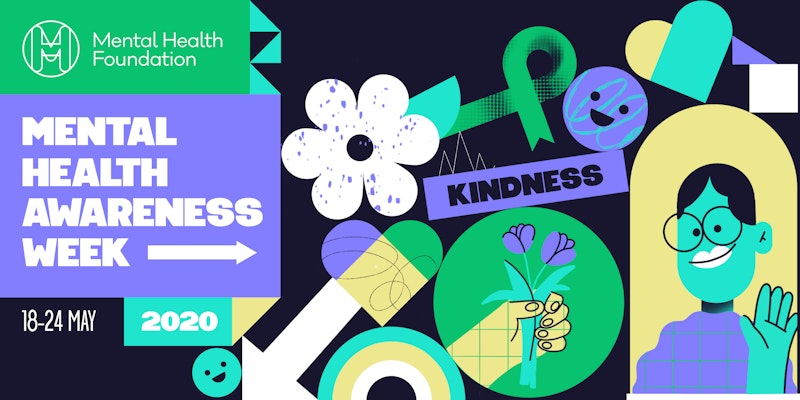News: Blog: Mental Health Awareness Week – Anxiety tips

18 to 24 May is Mental Health Awareness Week. Every year, the Mental Health Foundation run an awareness campaign to get everyone talking about mental health. This year’s theme is kindness, both being kind to yourself, and helping others where you can.
We have lots of resources for our current students on our student intranet, and Kate in our Student Wellbeing team shares 5 tips for relieving anxiety below.
Whether you are at home alone or living with other people, it can feel hugely challenging when our movements and routines are restricted.
First and foremost, be kind to yourself and those around you. It’s a stressful time and everyone is feeling the strain. Use this time as an opportunity to focus on your mental and emotional health, and make some healthy habits to continue with when things return to normal.
1. Reach out
Make it a priority to reach out to someone every day. Whether a relative, friend or someone you don’t see very often, just a 5‑minute phone call can make someone’s day.
2. Limit the noise

Try to avoid listening to the news and following social media constantly. It’s natural to want to know what is happening around us but it is important to find a balance if you find the news stressful.
3. Breathe and pause

If you are feeling anxious or your stress level is rising, take time to sit alone in a room, close your eyes, breathe deeply and count to 20. As you practise, count again and again.
As you grow more comfortable, try visualising a scene in nature, or a word such as peace or serenity and focus on that. If your mind wanders, just come back to the scene or the word.
The more we can quiet our minds, the more our mood and wellbeing will improve.
4. Take some 'me time'

Schedule some time to devote to yourself. This could be as simple as taking a nice bath, doing an activity you enjoy or taking some time outside to exercise (following government guidelines of course). Remind yourself that you exist, and that you and your health are important.
5. Accomplish small goals
Not knowing when the current situation will end can lead to feelings of distress and anxiety.
Doing small jobs we might have put off in the past is a constructive way of occupying our minds, and will help to keep our surroundings in better order.
Now is the time to sort out the kitchen cupboards, organise files or have the clear out you’ve been putting off for a while!
Please remember that if you feel really anxious, it’s important to talk to someone you trust and get some help.
Whatever the mental health issue, our current Nottingham College students can access advice about support on the Wellbeing Hub on the student intranet, or speak to their Achievement Coach.
Published on:
- 18th May 2020 (9:00 AM)
Media enquiries
If you are a journalist and would like to contact us about this news story, our PR and Communications team will be happy to assist you.